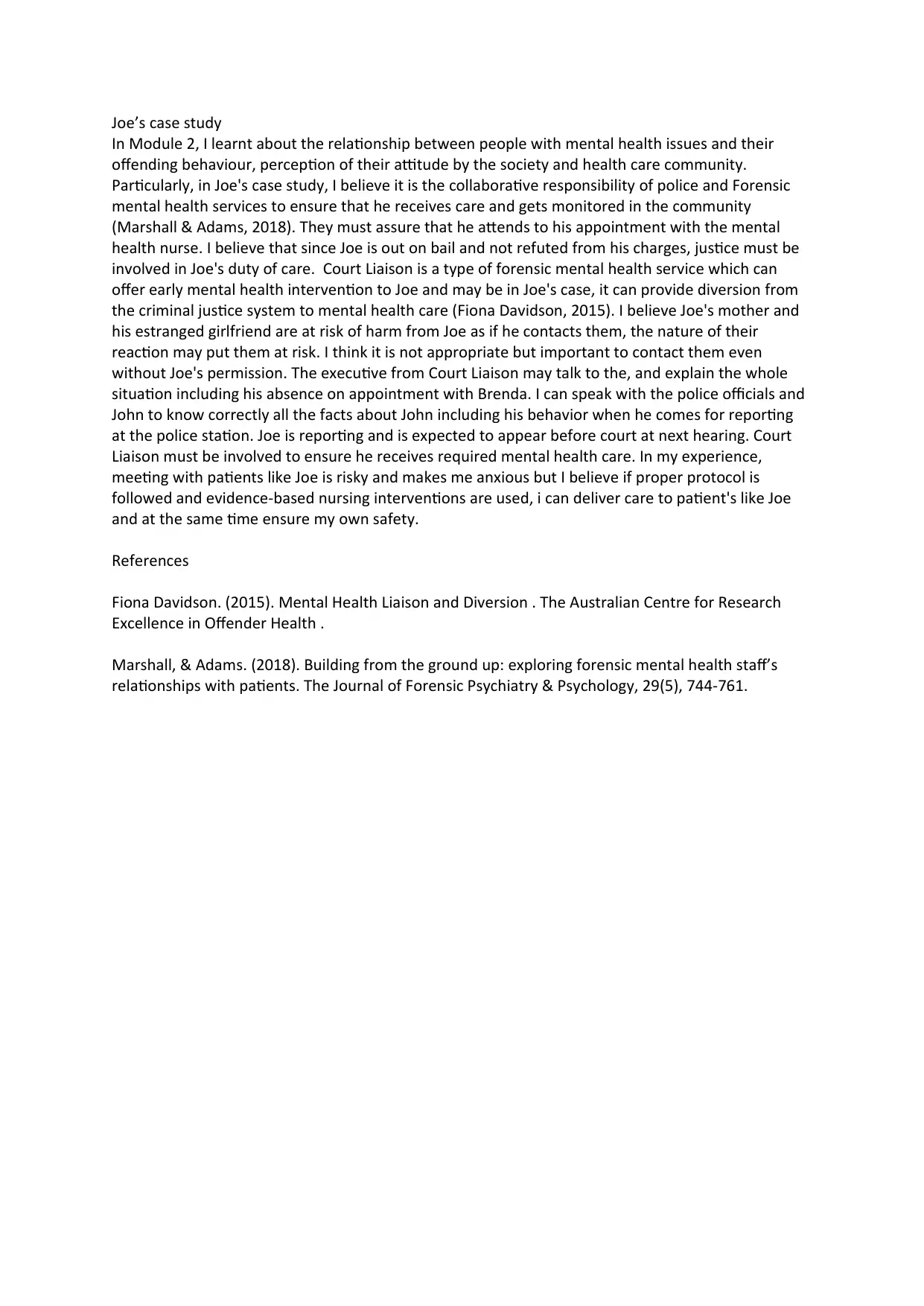Forensic Mental Health: A Case Study of Joe's Offending Behaviour
VerifiedAdded on 2023/04/10
|1
|358
|471
Case Study
AI Summary
This case study examines the situation of an individual named Joe, focusing on the intersection of his mental health issues and his offending behavior. It highlights the importance of collaborative responsibility between the police and forensic mental health services to ensure Joe receives appropriate care and monitoring within the community, particularly emphasizing his attendance at mental health appointments. The role of Court Liaison services is discussed as a means of providing early intervention and potentially diverting Joe from the criminal justice system to mental health care. A risk assessment is conducted, identifying Joe's mother and estranged girlfriend as potentially vulnerable. The study concludes by reflecting on the personal challenges and anxieties involved in managing patients like Joe, underscoring the necessity of adhering to proper protocols and utilizing evidence-based nursing interventions to ensure both patient care and personal safety. Desklib offers resources for students to further explore such case studies.



![[object Object]](/_next/static/media/star-bottom.7253800d.svg)